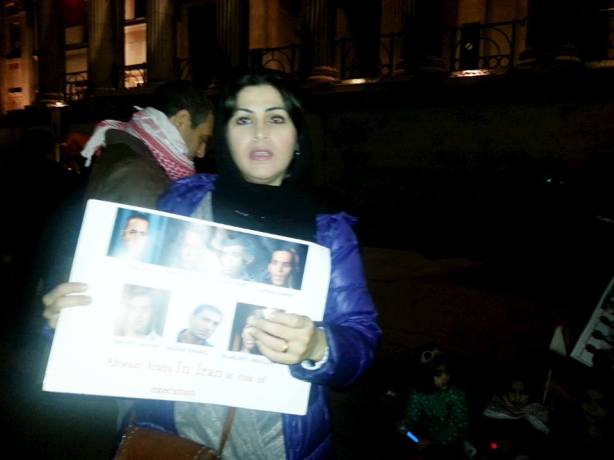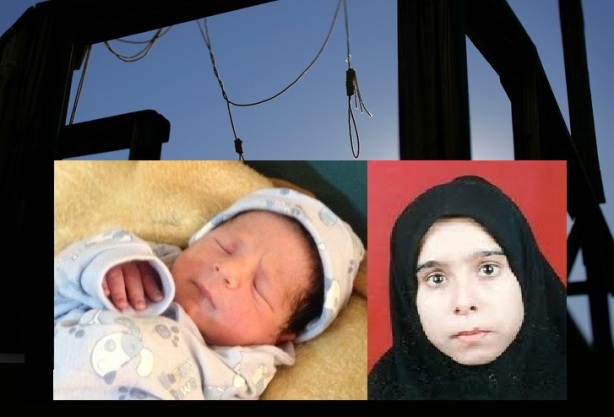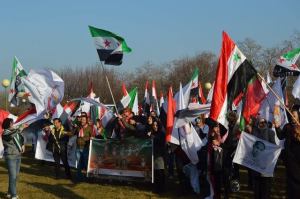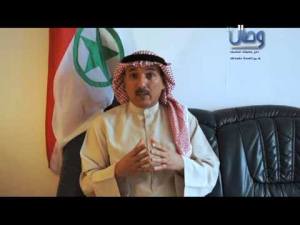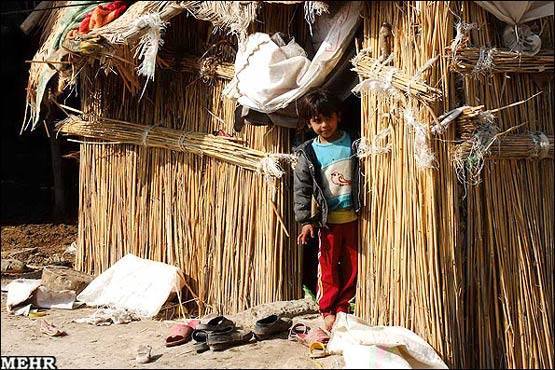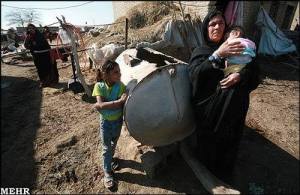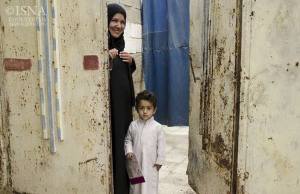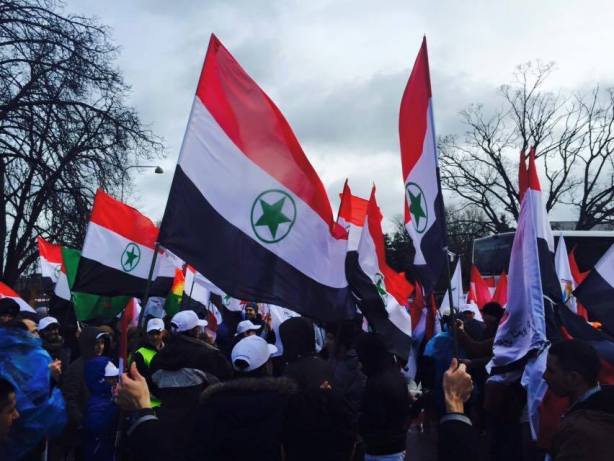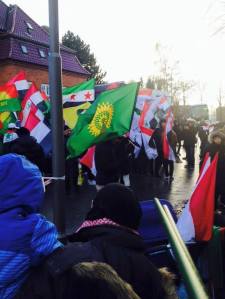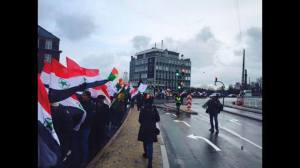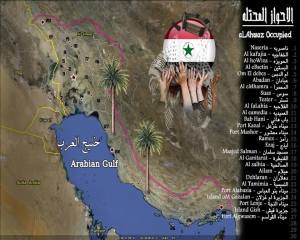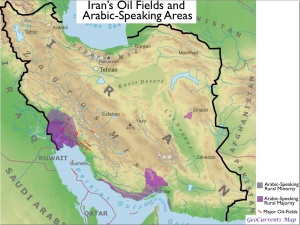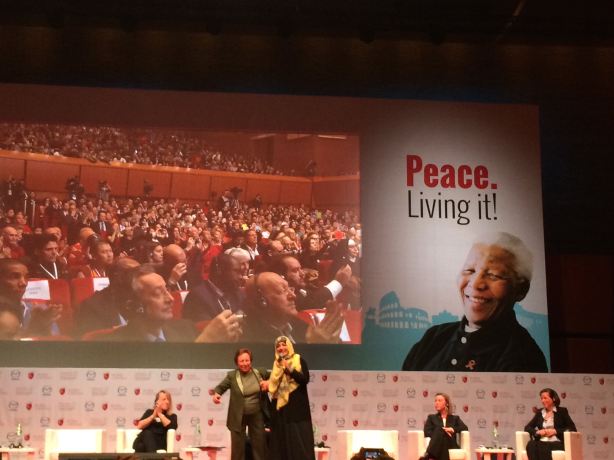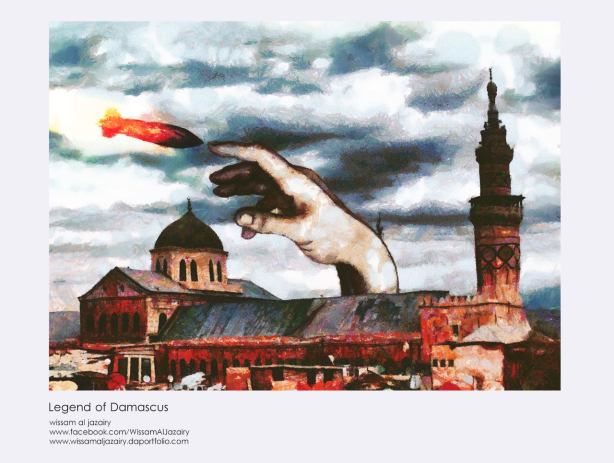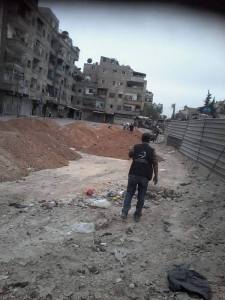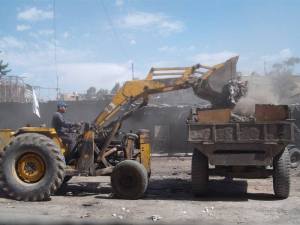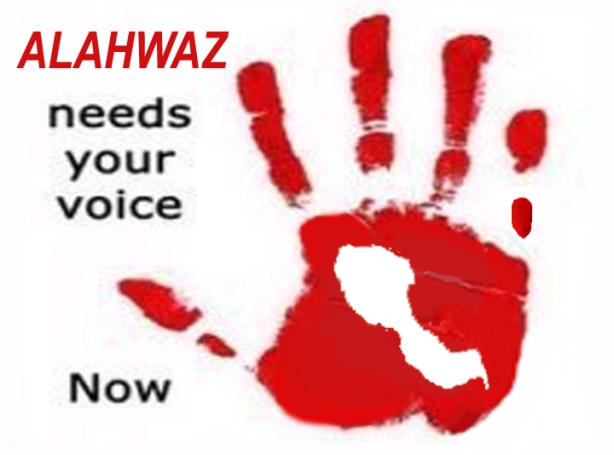 WRITTEN BY Rahim Hamid
WRITTEN BY Rahim Hamid
Al-Ahwaz region of Iran is currently witnessing a wave of mass protests and demonstrations demanding freedom and an end to the Iranian regime’s multifaceted oppression of the Ahwazi people, which has been continuous since Iran first occupied the region by the use of military force.
Ahwazi Arabs are among the most brutally oppressed peoples in the Middle East. The population of the region in the south and southwest of Iran totals around 10 million, with the people united by race, culture and language. The Ahwazi Arab dialect strongly resembles the dialect in neighboring Iraq. The majority of Ahwazis are Shia and Sunni Muslim, although there are other sects and creeds, including Christian and Mandaean.
Ahwaz is a Persian-occupied Arab country located in the north and the east of the Arabian Gulf to the east of Shat Al-Arab waterway which has been occupied by Iran for more than eight decades and renamed ‘Khuzestan.’
The entire territory of Ahwaz, covering 324,000 square kilometers, is bounded to the west by Iraq, to the south-west by the Arabian Gulf and Arabian Peninsula and to the north, east and south-east by the Zagros Mountains, the natural boundary between Ahwaz and Iran. With an Arab population of ten million, Ahwaz is among the most resource-rich territories occupied by Iran, holding more than 80 percent of the country’s oil and gas resources.
The region has three major rivers, the Karoon, Jarrahi and Karkheh, which play a vital role in the lives of its people, with most Ahwazis long economically dependent on the three waterways for their income from both fishing and agriculture, with the waters used to irrigate the rich arable land.
Historically the Semitic Elami tribes, the first known peoples of the Arabian Peninsula and Iraq, settled on Ahwaz’s riverbanks and valleys, establishing a great civilization, particularly the ancient city of Susa, now known as Shush.
Since the initial annexation of Ahwaz by Iran, then known as Persia, 90 years ago, the humanitarian situation of the Ahwazi Arab people has steadily worsened, with the level of murderous repression by the current regime rising daily, extending to the level of systemic ethnic cleansing as policy, forcible eviction of the Ahwazi indigenous people, and the construction of exclusive apartheid-style settlements for non- Ahwazi, non-Arab settlers; these settlers are offered multiple economic and social incentives to move there and given guarantees of a promising future, while the Ahwazi Arab indigenous peoples are further marginalised, alienated and denied the most basic rights in every field.
Historically the catastrophic suffering of the Ahwazi people first began after Reza Khan, the then-ruler of Persia, now called Iran, and invaded the Emirate of Al-Ahwaz in 1925, overthrowing the last independent Arab ruler of the region, Sheikh Khazaal Alkaabi, who was subsequently imprisoned in Tehran for 10 years before being murdered in 1936 by strangulation on the orders of Reza Khan.
The current theocratic Iranian regime has imposed authoritarian rule on Al-Ahwaz region by the harshest measures, in a bid to isolate the Ahwazi Arab people from their origins and their historical association with the Arab nations, simultaneously imposing an absolute media blackout on any reporting of the suffering of Ahwazis.
As is widely known, the Iranian regime provides no official statistics on the number of Ahwazi Arabs in Iran, but studies conducted by Ahwazi activists confirm that the current total Ahwazi population stands at between 8 and 10 million. American historian William Theodore Strunk in his work about Ahwaz: The Reign of Sheikh Khazal ibn Jabir and the Suppression of the Principality of Arabistan: A Study in British Imperialism in Southwestern Iran, 1897-1925, Unpublished PhD thesis, Indiana University August 1977, wrote that during the discovery of oil 1908 in Al-Ahwaz region, Ahwazi Arabs made up roughly 98 percent of the regional population.
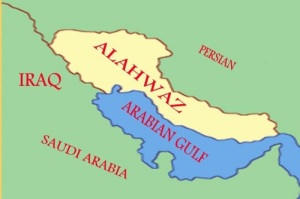 This majority has now shrunk to 70 percent, due to the regime’s policy of systemic and deliberate Persian immigration and colonisation of the region in order to alter its demographic composition.
This majority has now shrunk to 70 percent, due to the regime’s policy of systemic and deliberate Persian immigration and colonisation of the region in order to alter its demographic composition.
The primary reason for Iran’s occupation of Al-Ahwaz is the region’s major oil and gas resources. The region also has extensive and fertile agricultural plains irrigated by the Karoon River.
Ahwaz is a tropical region located in the south and south-west of what is currently known as Iran, with the region being a major producer of crops, including dates, cucumbers, carrots, potatoes, tomatoes, watermelons and other fruits and vegetables, as well as wheat, sugar and corn and many other cereal crops.
Despite all this natural abundance and its status as the center of Iran’s oil and gas industry housing massive industrial complexes, Al-Ahwaz is also the home of Iran’s poorest people, with 99% of Ahwazi Arabs living in extreme poverty and endemic deprivation. This destitution among the region’s indigenous people has its origins in the profoundly racist mentality of the Iranian occupiers, in whose eyes the Ahwazi people’s Arab identity poses a dangerous threat to the country’s national security.
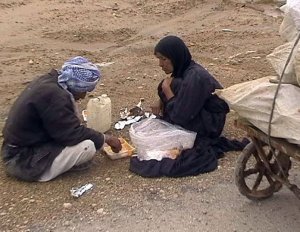
A destitute Ahwazi Arab couple, their home demolished by Iranian occupying forces, collect plastic from rubbish to sell simply in order to survive
Iranian colonial projects in Al-Ahwaz
The Iranian regime occupiers to this day seek to increase the proportion of non-Arab settlers in Ahwaz, even changing the original Arabic names of cities, towns, rivers and other geographical features to Farsi names in an attempt to deny the region’s Arab identity.
This systemic eradication of the Arab character and identity of the Ahwaz region and its peoples extend into every area of life, showing a thoroughly planned strategy to bury and erase the Arab culture and identity of Ahwazis once and for all via the illegitimate and forcible imposition of the Persian occupiers’ culture on the Arab peoples.
There is all too plentiful evidence of this policy which has led to the current bitter daily reality of the Ahwazi peoples. One of the earliest demonstrations of this policy was during the era of Reza Khan’s rule of then-Persia when the speaking of Arabic and wearing of Arab clothing in public were outlawed, with transgressors facing horrendous punishments.
Thereafter and to this day, Iran enforced an all-Farsi education curriculum in Al Ahwaz, with the teaching of the Arabic language forbidden and all studies in Arabic made illegal. This led to rampant illiteracy among the Ahwazi people, adding to the problems of widespread unemployment, with Ahwazis denied access to job opportunities on the pretext of their lack of educational qualifications. Through these openly grotesquely racist policies, the Ahwazi people were very deliberately weakened, losing any possibility of economic and social stability. These apartheid policies of successive Iranian regimes mean that Ahwazi people are still forbidden from giving their children Arab names or from wearing Arab dress, with the ultimate goal of eradicating all Arab identity and subsuming the Ahwazi people into simply another part of the Persian nationalist whole.
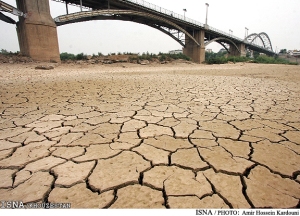
Karoon River which dried up due to transferring of its water to central regions of Iran
Ahwazi peoples suffer from systemic exclusion in every area of life and at all levels, with the regime continuing a policy of ethnic cleansing, arbitrarily seizing homes, land and property and ‘giving’ these to settlers from neighbouring Persian territories in order to change the demographic balance of the region; under the Iranian legal system, the Ahwazi peoples are denied any legal recourse to object to such grotesque injustices.
The key leadership positions in the region are dominated by Persians, with all such positions being off-limit to Arabs. There is no real representation of Ahwazi peoples at any political level in the region due to the ‘security’ concerns of the occupying Persian authorities in all affairs concerning the Ahwazi people.
Despite the region providing approximately 80 percent of Iran’s oil and gas resources, Ahwazis, the rightful owners of this wealth, are denied any share in the massive profits generated by their mineral or other resources.
The only part of the oil and gas production which is passed on to the Ahwazi people is the related air and water pollution and a related increase in dangerous diseases as a result of the toxic waste and toxic gases emitted by the oil and petrochemical facilities whose emissions are largely unmonitored, discharging massive amounts of harmful industrial substances into the surrounding environment.
Recent acid rainfall and dust storms in the region resulting from this large-scale industrial pollution have seen more than 50,000 Ahwazi people admitted to hospitals and medical clinics for treatment for related conditions, providing terrible and plentiful evidence of the environmental pollution in the region.
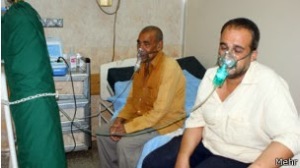
Ahwazi citizens who were admitted to hospitals due to difficulty in breathing after dust storms
Successive Iranian governments have allocated far less than one percent of the monies from the region’s oil and gas revenues and related petrochemical projects to the development of Al Ahwaz; indeed the Iranian parliament recently rejected – for a fourth time – a proposal presented by the regional vice-consul to allocate 1.5 percent of the region’s oil revenues for the reconstruction of towns and cities in the region devastated in the 1980-88 Iran-Iraq war, which ended 27 years ago.
Following Reza Khan’s 1925 military invasion of Al Ahwaz in 1925 and the ousting of Sheikh Khazaal, Ahwazi independence and sovereignty were formally denied when Al Ahwaz was annexed to become part of the newly established nation of Iran in 1934.
Since then, several Ahwazi Arab uprisings have taken place and been brutally quashed, with both military and civil movements reiterating their determination to continue their resistance and struggle for justice and freedom from Iranian occupation and to restore Ahwaz to its previous sovereign status.
Each uprising has met with murderous brutality at the hands of the Iranian authorities, with massive numbers of Ahwazis being banished and forcibly transferred to Persian regions.
Ahwazis have now received harsh treatment at the hands of Iranian authorities for generations. In the wake of the first popular uprising following the initial annexation of Ahwaz, Persia’s then-rulers banished large numbers of the people, forcibly resettling them in Persian regions as part of an ethnic cleansing policy, as well as changing the name of the region to Khuzestan and conferring Farsi names on cities, towns, villages and even geographic features like rivers, as well as banning the wearing of Arab clothing and criminalizing the speaking of Arabic, all in an effort to deny and effectively eradicate the region’s Arab identity and history.
These policies continue to the present day, with Ahwazi people’s land and property forcibly confiscated to be redistributed to Persian settlers in an attempt to ‘Persianise’ the Ahwaz region. In the late 1940s, the Persian rulers introduced a policy of settling people of Persia’s nomadic ‘Lur’ tribes in areas with Arab majorities, particularly around the oil-rich cities in the Ahwaz region, while Arab residents were forcibly transferred elsewhere.
This systemic ethnic cleansing policy has accelerated in recent years, with the apparent objective of eradicating the Arab identity and culture of Ahwaz. Any popular political movement or uprising led by Ahwazi dissidents, such as the last major one in 2005, protesting against this institutionalized injustice and oppression is brutally quashed by regime authorities, with massive violence against demonstrators and mass arrests and executions of hundreds of the most prominent dissidents.
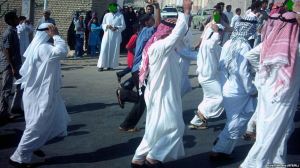
Ahwazi demonstration
After every uprising, hundreds of bodies of Ahwazi dissidents arrested tortured and killed by Iranian security forces are recovered from the Karoon River where they are dumped. The detained prisoners are routinely held incommunicado for months, during which they are subjected to horrific torture and interrogation, with ‘confessions’ extracted under duress.
Ahwazi people have repeatedly sought to utilize every peaceful political means to attain even the most basic human rights, which are supposedly guaranteed under the current Iranian regime’s constitution, particularly in Articles 15 and 19, which stress the right to education in the native language of all ethnic groups within Iran, including Arabs, Turks, Kurds and Baluchis. This legislation is effectively superficial window dressing, however, since the regime refuses to implement these articles, with the result that more than half of Iran’s population who are ethnically non-Persian are denied the right to be educated in their mother tongue; this in turn means that, with an educational curriculum taught solely in Farsi, schools in the already marginalised non-Persian areas see high rates of non-attendance, with pupils dropping out at an early stage, leaving these populations further disadvantaged by widespread illiteracy and low education levels. Added to this, the criminalization of Arab culture, including proscriptions on Arabic language in both speech and education, along with the widely resented imposition of Farsi as the official language leaves students largely unskilled in both languages and suffering from a dual identity crisis.
Historical context
To understand the contemporary crisis in Ahwaz, it’s necessary to know some historical background. Oil was first discovered in Ahwaz, as elsewhere in the Middle East, in 1908, piquing the colonial greed of both the Persian state and the Western powers, with the then-British Empire seeking to expand its regional power and control in tandem with other European powers.
With the outbreak of World War I in 1914, Ahwaz also assumed a strategic importance for the nations involved due to its strategic location.
In 1925, the Pahlavi dynasty came to power in Persia, ousting the previous ruler of Persia, Ahmad Shah Qajar. Reza Pahlavi identified the geopolitical significance and resource wealth of Ahwaz as potential major assets, with the new rulers wasting no time in invading and annexing Ahwaz, deposing Sheikh Khazaal, in 1925. In 1936, the year of Khazaal’s execution, Ahwaz was given a new, Farsi name, ‘Khuzestan’, while Persia was renamed ‘Iran’ – ‘Land of the Aryans.’
As Persia’s new name suggested, the Pahlavi dynasty was founded on a strongly nationalistic ideology, with all of Tehran’s territories depicted as homogenous parts of a mono-ethnic, monocultural Persian whole. This resulted inevitably in deeply racist antagonistic policies towards the Arab peoples of Ahwaz as to other non-Persian peoples in territories under Iran’s control from the 1920s which continue to the present day, with all non-Persians essentially robbed of their culture and identity. This denial and eradication of non-Persian identity extended into every area of life, from language, dress, education to all aspects of culture. Following the 1979 Islamic revolution, these brutal proscriptions extended to religion, with non-Shiites (and Shiite dissidents) being persecuted and non-Shiite religious ceremonies and worship heavily punished by imprisonment, torture and often execution.
A History of Dissent: Ahwazi resistance continues in the second Pahlavi era under Mohammad Reza Shah (1941–1979) and since the ‘Islamic Revolution’.
The grievances of the minorities under Iranian rule (who combined comprise the majority) grew throughout the second Pahlavi monarchy (1941-1979) since Mohammad Reza Pahlavi adopted his father’s deeply chauvinist policy to ethnically restructure the country completely based on Persian ethnicity and identity. Mohammad Reza Pahlavi introduced even more extensive policies intended to subjugate, marginalize and eliminate the five largest minorities under Iranian rule: Ahwazi Arabs, Turkish Azaris, Kurds, Baluchis and Turkmen peoples.
In response to these brutal policies, Ahwazi Arabs and other oppressed groups launched both peaceful and armed uprisings to defy this policy of systemic subjugation and ethnic cleansing. In 1958, the ‘Arabistan Liberation Front’ was established with the objective of liberating the homeland from Iranian occupation, operating primarily in the cities of Abadan, Mohammareh and Ahwaz.
Two decades after this, in the initial period following the 1979 Islamic Revolution, Ahwazi Arabs felt inspired and hopeful of positive change as a result of the overthrow of the brutal monarchy. In light of this new spirit of optimism, a delegation of 33 leading Ahwazi figures representing all classes and points on the political spectrum was dispatched to Tehran in late April that year, under the aegis of the then-Ahwazi spiritual leader Grand Ayatollah Sheikh Mohammad Taher Al Shobair Khaghani, for talks with the new provisional government, then chaired by Mehdi Bazargan. The delegates took with them a memorandum containing 12 demands for very basic reforms, as agreed by the vast majority of prominent Ahwazi political and social leaders, with the people pinning their hopes on the new rulers in Tehran to help Ahwazis attain their legitimate rights and achieve long-denied freedom.
Among the demands laid out in the memorandum were:
- Legal recognition of Ahwazi Arab nationality, to be acknowledged and protected under the new Iranian constitution.
- The formation of a local committee to administer the affairs of the Ahwazi region as an autonomous, broadly independent territory.
- Recognition of Arabic as the official language in Ahwaz, to be taught at school and further education level and the foundation of schools and universities for this purpose, with Arab students to be granted the opportunity of overseas scholarships.
- A guarantee of freedom of expression, freedom of assembly and the freedom to establish Arabic newspapers and broadcast media, and an end to the draconian censorship policies of the Shah’s regime.
- Abolition of discriminatory policies towards Ahwazis in civil service recruitment.
- The allocation of sufficient funds from the oil and gas revenues from Ahwazi lands to help in development of the Ahwazi region.
- The restoration and recognition of the Ahwazi people’s right to their Arab identity, i.e. through reintroducing the Arabic names of towns, cities, villages and geographic features rather than the Farsi names conferred under the Shahs’ rule.
- Revisions and reforms to the previous regime’s agricultural legislation in order to allow land to be redistributed in a fair and equitable way among Ahwazi farmers, with their ownership rights to be taken into consideration.
During their week of talks in the capital, the delegates met with the then-Prime Minister and other ministers of the new government, as well as with the clerical regime’s religious leaders, including Ayatollah Khomeini. In these talks, they were assured of the new leadership’s full commitment to overturning the policies of the previous regime, renouncing violence and preserving the unity and integrity of the country. The delegates, on their part, reassured the officials that the Ahwazi people fully accepted that all state affairs concerning foreign policy, military issues, the monetary system, international treaties and economic plans should be exclusively the concern of the central state.
The Ahwazi delegates had hoped that even if all the demands laid out in the 12-point memorandum were not met, the new leadership would at least grant the Ahwazi people their basic rights and put an end to the Shahs’ decades-long policies of systemic brutal injustice and oppressive rule. During their meetings, however, the delegates came to realise that the new rulers were little different to the previous despotic regime in their racist attitudes and discriminatory policies towards Iran’s non-Persian population.
Following their return from Tehran, the delegates issued an official statement declaring that the new Iranian leadership had trivialized and undermined the concerns of the Ahwazi people. This led to widespread public anger among Ahwazis, who had been hopeful of real change following the revolution, with many taking to the streets for demonstrations against the continuing racism of the Iranian state to voice their disappointment and disillusionment. The protesters pointed out that the leaders of the Islamic Revolution had come to power with slogans promising a new openness and tolerance and making promises to fulfill the Ahwazi people’s long-denied demands for basic rights, all of which had turned out to be false. Instead, said the protesters, the new regime had shown the same contempt as the previous one, baring its teeth in response to their demands for freedom and rights.
In response to these protests and to the Ahwazi Arabs’ demands, officials of the new clerical regime immediately launched a propaganda and disinformation campaign, now widely known as a standard regime tactic, falsely alleging that the Ahwazi peoples’ protests were part of a regional and global conspiracy to separate Ahwaz from Iran, and asserting that any concessions to the Ahwazi people’s demands would undoubtedly threaten Iran’s territorial integrity, warning ominously that any such protests should be ‘neutralised’ at any cost.
The meaning of this ‘neutralisation’ became horribly clear on May 29th 1979, only a few months after the revolution brought Ayatollah Khomeini to power, with the new clerical regime’s military, supported by affiliated voluntary extremist sectarian militias launching a murderous offensive on Ahwazi Arab dissidents, killing many hundreds, with thousands more imprisoned and forcibly ‘disappeared’ or forcibly displaced. The day subsequently became known amongst Ahwazis as ‘Black Wednesday.’
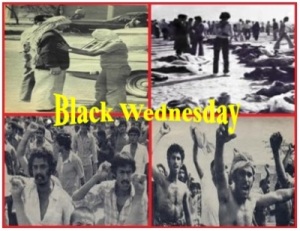
Images of the brutal crackdown on Ahwazis who were massacred savagely in Mohammareh
The ‘Black Wednesday massacre was carried out in direct response to a Fatwa (religious decree) issued by Ayatollah Khomeini, who directly ordered Ahmad Madani, the then-military governor of Ahwaz to organize the massacre of all the members of political and cultural organizations of the Ahwazi Arab people in Mohammareh city. To carry out this crime against humanity, Madani deployed the regime’s air and naval forces, who were supported by masked volunteer militias, who coordinated a massive military operation besieging and attacking all the headquarters of Ahwazi political and cultural organisations in the cities of Ahwaz, Abadan, and Mohammareh cities.
Ahmad Madani subsequently became a hero to the Persian people for his leadership of this slaughter, being appointed Commander of the Iranian Navy as a reward for his leading role. He was subsequently quoted as stating, “The Ahwazi are inciting riots so I will drink their blood if they continue insisting on their illegal demands.”
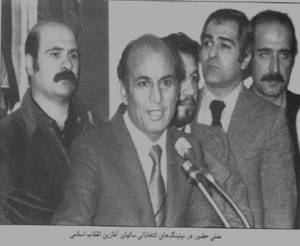
Ahmad Madani and his speech on the necessity of quelling Ahwazi demonstrations
The staff and anyone else in the buildings, including those who attempted to flee the regime’s forces, were either arrested or shot dead if they attempted to flee. When news spread of the regime’s massively brutal offensives, hundreds of enraged residents of the three cities rushed to the scenes of the atrocities in a desperate effort to save the activists. Despite being unarmed, these people in turn were machine-gunned in massive numbers by the masked militias and otherwise executed in cold blood, with survivors who didn’t manage to escape being arrested, imprisoned and/or forcibly exiled.
Mohammed Sadeq Givi Khalkhali, one of the main regime officials under Madani responsible for organizing this slaughter, was subsequently appointed as Chief Justice of the regime’s revolutionary courts in the region, where he ordered the execution of countless other innocent Ahwazi Arabs, often following ‘military trials’ which lasted no longer than a few minutes.
Unfortunately, like so many of the clerical regime’s brutal crimes against Ahwazis and others, ‘Black Wednesday’ has remained uninvestigated and unmentioned by international human rights organisations to date, despite being deeply etched on the memories of the survivors and of all Ahwazi peoples, for whom it is impossible to forget or to forgive until the perpetrators are brought to justice. Despite the regime being accorded absolute impunity by the international community to act with barbaric savagery and to sweep such crimes against humanity under the carpet, the day will live in infamy among all Ahwazis, even those who weren’t born at the time.
One desperate reaction in the aftermath of ‘Black Wednesday’ was the 1980 Iranian Embassy siege in London by an Ahwazi Arab pro-autonomy group who demanded the release of 91 of their comrades held in Iranian jails. Given the relentless decades-long murderous repression of Ahwazis by successive regimes and their refusal to grant even the most basic human rights to the Ahwazi peoples, some Ahwazis see no hope of regaining their rights under such monstrously unjust leadership, with the Pahlavis’ monarchy and the Islamic Republic’s theocracy being effectively two largely indistinguishable faces of the same genocidal and deeply racist coin for Ahwazis and other minorities in Iran.
Whilst it has gone down in Ahwazi history as one of the most infamous of the Khomeinist regime’s crimes, ‘Black Wednesday’ was not isolated incident, with similar murderous brutality meted out routinely, indeed systemically as regime policy, to Ahwazi peoples and other minorities by regime forces and militias in that period and ever since.
Like their predecessors, Ahwazi dissidents and intellectuals continue to face the threat of imprisonment, torture and execution simply for campaigning or writing in support of freedom, self-determination and human rights.
The three founders of the ALF, Mohiuddin Al-Nasser, Dohrab Al-Nasseri and Isa Nasseri, were executed in 1964 at the hands of the Organization of Intelligence and National Security, better known by its Farsi acronym, SAVAK, which led the regime’s rule of terror between 1957 and 1979. This, along with the tragic bloody massacre in Mohammareh city in 1979, and the brutal crackdown on another popular uprising in 2005, are just a few of the stark indications of the dangers faced by Ahwazi dissidents and intellectuals, who live under the constant threat of prison, torture, exile and/or execution.
In the face of this relentless persecution, the Ahwazi people have continued their long struggle for freedom, self-determination and their long-denied legitimate rights; despite the lack of regional and international support for their cause, the people have maintained their determination to continue until they attain their objectives.
Indeed, it could be argued that the many obstacles and the lack of external support or recognition of Ahwazis’ struggle have resulted in strengthened resolve among the Ahwazi people, recognizing that only they can achieve their liberation and succeed in the struggle for freedom, social emancipation and self-determination.
These efforts have led to the establishment of a number of political organisations and groups which have introduced political and social programs that enjoy widespread popular support. Ahwazi groups have also built strong links with liberation movements representing other non-Persian minorities in Iran oppressed by successive Iranian regimes during the same period, including Kurds, Turks, Baluchis and Turkmen.
After its initial revolutionary fervor, the clerical regime’s profoundly reactionary nature, along with its double standards and hypocrisy, became clearer as time went on. For one example, despite having lived and studied in France, the home of liberté, égalité, fraternité, during his exile, Bani Sadr, a prominent figure among the leaders of the Islamic Revolution, returned to Iran only to become one of the most vehemently racist Persian nationalists in the new regime. Sadr enthusiastically supported the brutal persecution of the Ahwazi people under the new leadership, with his greed for power quickly overcoming any revolutionary ideals he had previously espoused. In an interview with a Paris-based Iranian news agency concerning the popular uprising by Ahwazis in support of freedom and self-determination, Sadr said, “ will not grant autonomy to any territory because it simply means the disintegration of the country”.
Another official, who had met with the Ahwazi delegates during the 1979 talks and promised that their demands would be submitted to the consultative committee then drafting the new constitution, reneged on his promises, telling the official news agency, “Granting autonomy is without doubt considered separation which threatens national unity.”
Meanwhile, Ayatollah Khalkhali, prioritized his loyalty to the new regime, vehemently opposing any autonomy and stating, “We will cover the Shaat al-Arab with the blood of those pro-autonomy Ahwazi Arabs.”
In extracts from his posthumously published memoirs, reported in the Iranian Hamshahri newspaper in December 2001, the ayatollah appeared to have been proud of his criminal practices against Iran’s Arab Ahwazi and Kurdish peoples, writing, “I have killed a lot of Ahwazi Arabs, Kurdish and remnants of the monarchy, but I don’t regret it, and my conscience is not tormenting me.”
Regime oppression continues
The clerical regime’s racist attitudes to Ahwazi Arabs and other minorities remain as deeply entrenched today as they were in 1979, having become institutionalized and systemic as under the Shahs’ rule. Ahwazis continue to be subjected to ethnic cleansing and the withholding of all rights, with imprisonment, torture and execution standard policy for even the most minor offence or for no reason other than to maintain fear, and ensure continued subjugation and break the will of the people. As a result of this policy, the percentage of Ahwazi Arab prisoners in the regime’s prisons is, unsurprisingly higher than that of any other group. Regular calls by the EU and international human rights organisations for the introduction of fair and transparent trials for Ahwazi prisoners, who are routinely denied access to a lawyer as standard practice, have been disregarded.
Despite the clerical regime’s oft-repeated claims to stand for Palestinian freedom, anti-Arab racism is endemic and encouraged by the regime, with Arabs being commonly referred to by derogatory terms such as ‘lizard-eaters’ and ‘camel’s milk-drinkers’ and depicted as uncivilized barbarians and barefoot nomadic peoples.
Denied rights and employment, destitution amongst Ahwazis is widespread, with disproportionate numbers living in the most abject poverty amid unimaginable conditions. With the Tehran regime deliberately withholding funding, infrastructure development is non-existent, with thousands in the regional capital, Ahwaz, living in areas with open sewers, no sanitation, rampant diseases due to pollution, no access to running water, electricity or gas, despite the fact that the region is, as mentioned above, the centre and backbone of Iran’s massive oil wealth, containing over 80 percent of its oil and gas resources. Ahwazi peoples are essentially treated as fifth-class subjects in their own lands, while Persian settlers introduced by Tehran to change the demographic balance live in great affluence in pleasant Persian-only settlements as part of the regime’s policy of tempting more Persians to move to these areas. Those Ahwazis who are able to find employment have access only to the most menial, low-paid jobs, with all desirable jobs reserved for Persians.
Although most Ahwazis are Shiite, those who are Sunni face even greater discrimination due to the clerical regime’s persecution of non-Shiites.
Almost a century of systemic racist subjugation as policy has led to the Ahwazi people being one of the most marginalized and oppressed peoples in the Middle East and the world, with one of the highest rates of incarceration and execution globally.
The disfranchisement and ethnic discrimination policies of the Persian state towards Ahwazi Arabs have crippled the majority of the Ahwazi population, with an estimated 80 percent of Ahwazi households living below the poverty line, even while their lands sit on virtually limitless oil, gas and mineral resources that have been exploited to benefit Iranian occupiers since before the state of Iran even came into existence.
The absolute censorship of the press and media has been a serious obstacle for Ahwazi activists attempting to raise awareness of the systemic racism and abuses perpetrated against the Ahwazi people, allowing the regime to continue these inhuman and supposedly internationally outlawed policies.
Iranian hard-liners consider Ahwazis a threat to the integrity of their theocratic state and to the oil and gas wealth which is one of its primary income sources, and have done their utmost to disseminate negative perceptions of Ahwazi peoples, labelling activists as apostates and terrorists and thus enabling the judicial system to issue grotesquely unjust prison sentences against them. The EU parliament and a number of international human rights organisations have issued a large number of extensive, well-documented reports listing some of the abuses and violations commonly inflicted on Ahwazi peoples and other non-Persian minorities in Iran. These decades-long abuses comprise part of a longstanding policy, which predates the clerical regime but have been enthusiastically adopted by it, with the ultimate objective of eradicating, subjugating and subsuming the non-Persian population in every way.
For far too long, successive Iranian regimes have denied the true diversity of the ethnic mosaic which makes up Iran, which is in reality the most ethnically diverse country in the Middle East. The flagrant and systemic violations and abuses against non-Persian minorities show that the current regime, like the monarchy that precedes it, is in reality founded on a savagely fascistic, repressive and racist mono-ethnic, monocultural ideology, regardless of its veneer of theocratic piety.
In summary
At present, we see strong and continues popular movement in Al-Ahwaz, once comes out in a football stadium to express the power held by the people against the Iranian military, again it shows up at the funeral of “Younes Asakereh” the martyr which his funeral turned into a huge anti-regime protest in “Mohammareh” city.
As people in one united voice chanted revolutionary slogans calling for popular uprising in Ahwaz against the racial discrimination, the national oppression, the marginalization, the rampant poverty, unemployment, and attempts to obliterate the Arab identity of the region at the hands of the occupying Tehran government’s policies in Al-Ahwaz.
As matter of fact, organizing such Ahwazi populace movement at wide scale which engulfed the most parts of Al-Ahwaz aims to the following:
– Applying pressure on the Iranian regime, through the general popular rejection of the brutal Iranian policy in Ahwaz and in all countries that Iran presents.
– Working with non-Persian peoples against mullahs’ authority to expose its violations against the peoples exists in geopolitics Iran.
In fact, this Ahwazi movement has become an example to the rest of peoples in geopolitical Iran, the people of (Turk, Kurds, and Baluchs) was directly affected by this movement on many occasions and in conjunction with Ahwazi people have staged protest rejecting the repressive measures of Iranian regime conducting against non-Persian national groups and even Persian community. Many senior intelligence officials has visited Ahwaz to calm the situation which came up in a very critical time for Iran while it’s looking for internal cohesion to continue its sabotage in the Arab world, This senior-level of security officials visits reflects the strong movement of Ahwaz and it’s reflection to what is going on in the Arab Nation which is fed up with Iranian hegemony.
Without doubt, all these events in the region are in the national security interests of the Arab countries, the inner uprising of the non-Persian peoples are fruitful to those peoples firstly, and secondly they are in the same row against Iranian expansion in the Arab world.
For Ahwazi Arab people, the matter is not being forgotten like before, we now see the Arab media generally interested in Ahwaz’s cause specially the Saudi media, as well as the liberation groups started to have armed wings, the “Arab struggle for the liberation of Ahwaz” movement on the top of it which succeeded in directing painful blows to Iran in both revolutionary field inside occupied Ahwaz homeland or its political activities in all over the world.
This is the truth in spite of Iranian media ignoring Ahwaz’s movement which is living real uprising despite more than eighty years of Ahwaz’s occupation, where Iran exercised all forms of racism to root out the Arabic identity and it didn’t even succeed to contain all Ahwaz’s Shiites, which most of them are resisting the Persian occupation, on the other side the Sunni elimination didn’t succeed and the number of Shiites who converted to be Sunni exceeded all the expectations.
It is noteworthy that ever since the April 15th uprising in Ahwaz in 2005 commemorating the anniversary of the original 1925 Iranian occupation of Ahwaz (which was subsequently renamed Khuzestan in 1936), Iranian security and intelligence services have launched brutal crackdowns and mass arrests of activists and civilians in the weeks preceding the anniversary in an attempt to intimidate the people and prevent further demonstrations.
It is imperative that Arab and Western human rights organisations take up the too-long ignored cause of Al Ahwaz on the basis of basic humanitarian principles, recognizing that the occupied and horrendously brutalized peoples are being deprived of their most basic rights as fellow human beings.
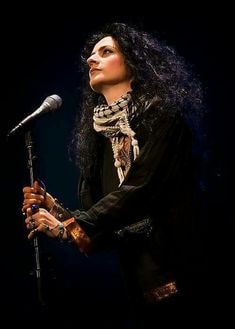
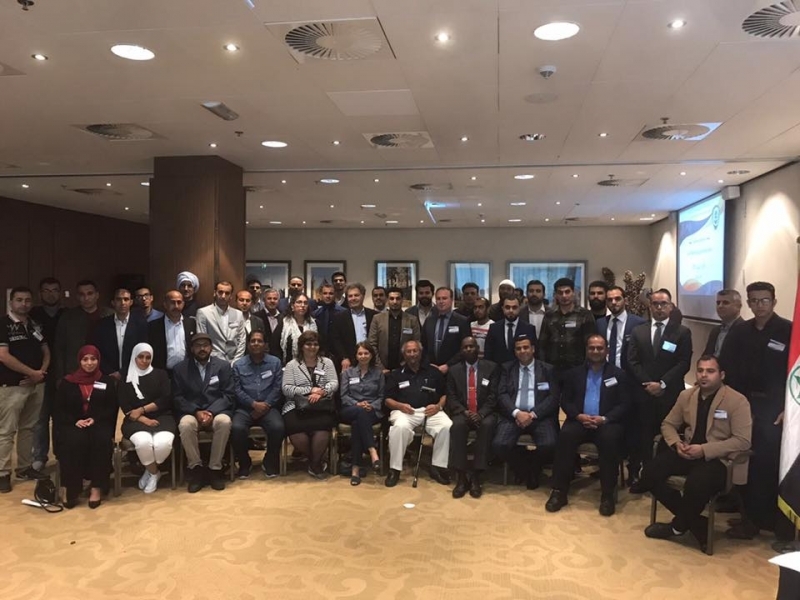 Ahwazna
Ahwazna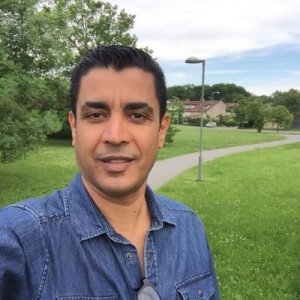



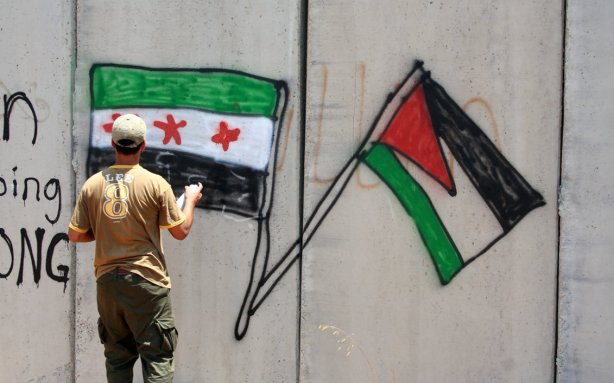
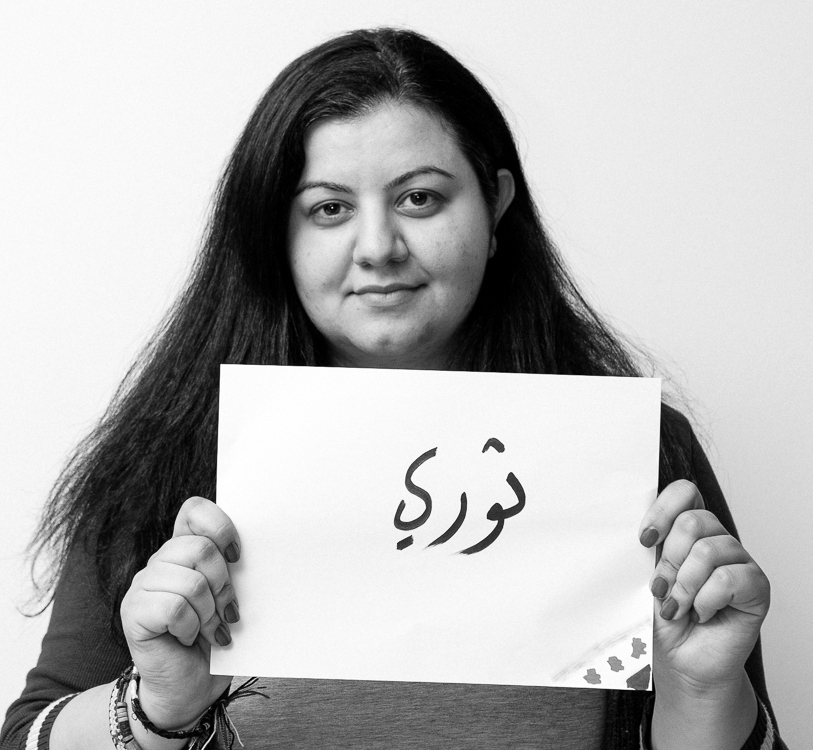
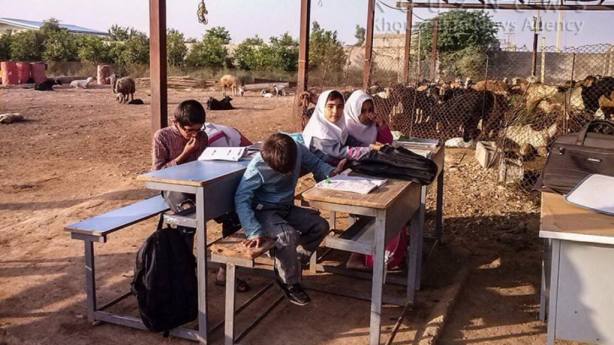
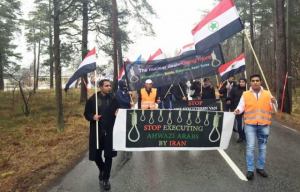

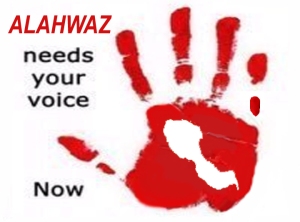
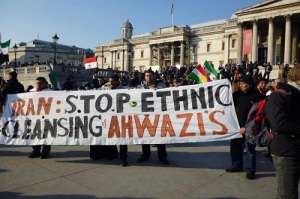
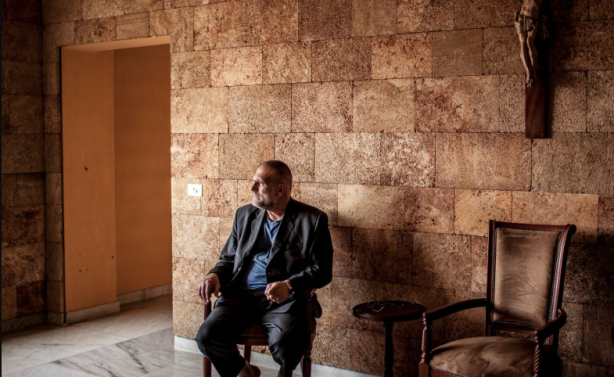
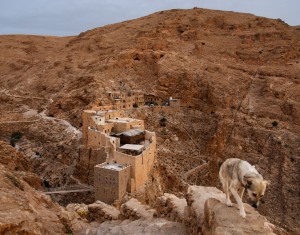
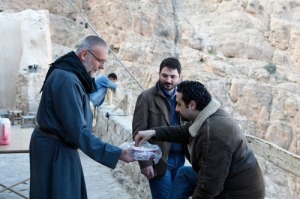

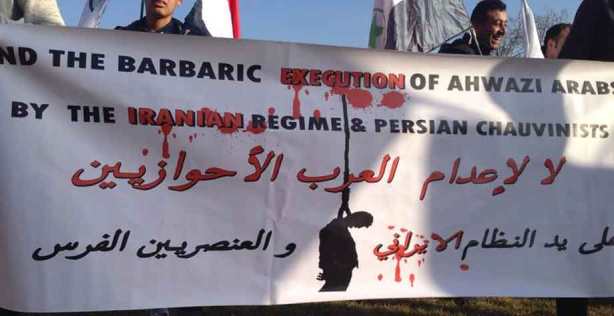
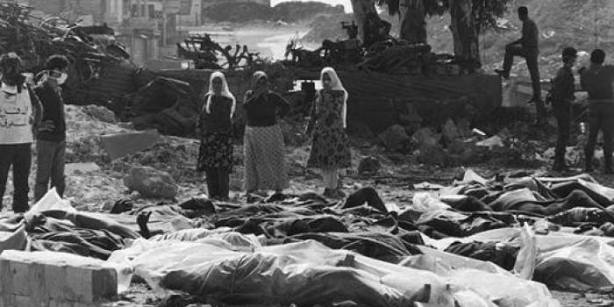
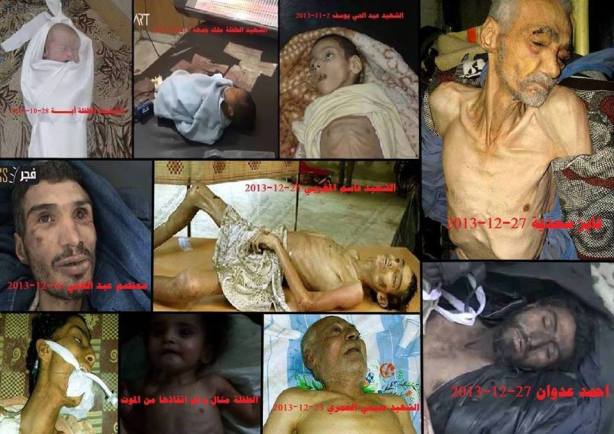

 This majority has now shrunk to 70 percent, due to the regime’s policy of systemic and deliberate Persian immigration and colonisation of the region in order to alter its demographic composition.
This majority has now shrunk to 70 percent, due to the regime’s policy of systemic and deliberate Persian immigration and colonisation of the region in order to alter its demographic composition.





